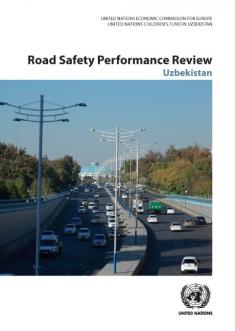Road accidents are a major problem in modern societies: annually almost 1.2 million people are killed and 50 million injured globally. Road traffic injuries are estimated to be the eighth leading cause of death globally, and the leading cause for children and young adults aged between 15 and 29 years, thus heavily implicating people who are entering their most productive years. These losses are largely preventable, and they underscore the urgent need for action to improve road safety.
In 2020, the United Nations General Assembly proclaimed the decade 2021-2030 as the Second Decade of Action for Road Safety and set a goal to stabilize and reduce the level of global road traffic fatalities by increasing safety programmes at the national, regional and global levels.
Using previous experiences in establishing road safety system, in 2020 the Inland Transport Committee Recommendation to Enhance National Road Safety System (ITC Recommendations) were formulated, focusing on applying the safe system approach: in road safety system management, for safe users, safe vehicles, safe roads, and effective post-crash response, and addressing them as the essential blocks for developing an integrated and effective national road safety system.
The Road Safety Performance Review (RSPR) was designed to help the beneficiary country to strengthen the road safety capacities and effectively address and improve national road safety system. The most critical road safety aspects and priority needs in the beneficiary country will be identified by preparing the RSPR. The RSPR will map gaps in national institutional, legal and regulatory frameworks, assess the level of compliance with UN road safety legal instruments - all in line with the ITC Recommendations and the Second Decade of Action for Road Safety and give recommendations for future actions. Based on the RSPR findings, a national capacity-building workshop/s and policy dialogue will take place to provide further training on the priority areas identified through the RSPR and on accession and implementation of United Nations road-safety related legal instruments.
The RSPR was prepared for four countries Albania, Georgia, Dominican Republic and Viet Nam in the framework of the UNDA-financed project and the UN Secretary General Special Envoy for Road Safety Secretariat completed four more RSPR in Uganda, Cameroon, Ethiopia and Zimbabwe based on the same methodology.


